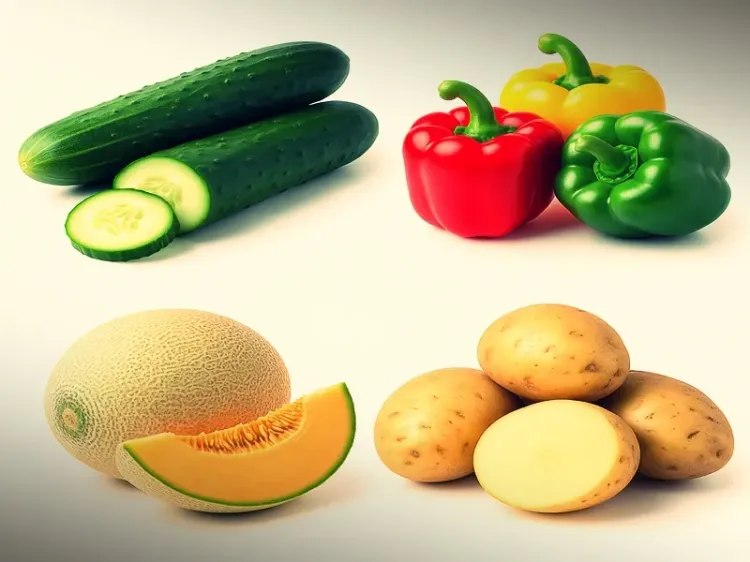How Does Cultivating Cucumber, Capsicum, and Melon in a ‘Polyhouse’ Yield Profits Up to Rs 14 Lakh in Punjab?

Synopsis
Key Takeaways
- Polyhouse farming can significantly increase profits.
- Modern technology enhances traditional farming practices.
- Government support through schemes is crucial for farmers.
- Crop diversification leads to better income stability.
- Proper site selection is vital for polyhouse success.
Chandigarh, Oct 26 (NationPress) After transitioning from traditional farming methods, farmer Harbir Singh has started cultivating seedless cucumber, colored capsicum, melon, and potato by establishing a polyhouse or greenhouse, achieving an annual profit ranging from Rs 12 to Rs 14 lakh.
Shailender Kaur, Director of Horticulture, mentioned on Sunday that leveraging government initiatives, Singh, a farmer from Saraba village in Ludhiana district, has been reaping significant profits through polyhouse farming and has become a role model for fellow farmers.
After earning an electrical engineering degree, Singh opted for farming over a corporate job, setting remarkable standards by marrying traditional farming with modern technology. The department is actively promoting crop diversification to bolster farmers' incomes statewide. These farmer-centric schemes are proving advantageous for cultivators, offering comprehensive support to embrace modern agricultural practices.
In 2014, Singh transitioned from conventional vegetable farming and received specialized training at the Centre of Excellence for Vegetables in Kartarpur. He utilized the National Horticulture Mission Scheme for subsidy assistance in establishing his polyhouse, where he began cultivating colored capsicum and seedless cucumber, frequently consulting Horticulture Department officials to tackle farming challenges.
Singh attributes his success to hard work, dedication, meticulous problem-solving, and consistent guidance from the Horticulture Department.
According to Punjab Agricultural University (PAU) in Ludhiana, greenhouses are framed structures covered with UV-stabilized transparent or translucent plastic film, enabling crop growth under controlled environmental conditions for maximum yield and quality. This method allows for year-round cultivation based on market demand.
The outcome: top-quality produce, devoid of blemishes. Additionally, it simplifies the protection of crops from pests, diseases, and adverse weather conditions.
The optimal site for a polyhouse should be well-drained and adequately sunlit, located at least three times the height of any obstructions in the east, west, and south directions. Suitable crops for polyhouse cultivation include capsicum, tomato, cucumber, and leafy vegetables. Flowers like rose, gerbera, and lilium are also ideal for polyhouse farming.










